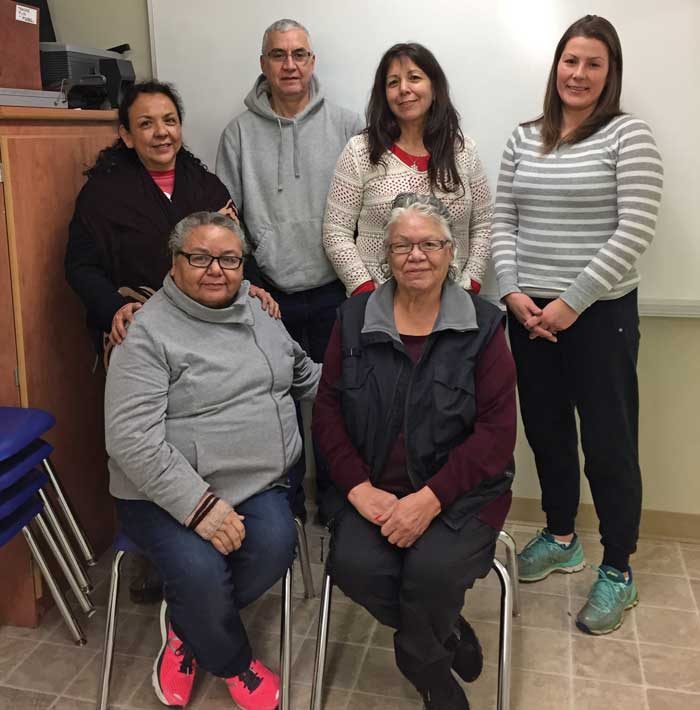Learning Indigenous language positive for health, research shows
By Kristy Williams,
Indigenous Family Doctor
Williams, a new doctor, attended a Hul’qumi’num language class at Snuneymuxw to learn from elders as part of a research project during her final year of studies at the University of British Columbia. She recently presented her project to her colleagues, and submitted this article to the Sentinel with permission from community members.
“You know the language. You just need to wake it up. It’s already there and it always has been there. You just need to wake it up.”
These were the words that Mandy, one of Snuneymuxw’s Hul’qumi’num teachers, told Shxwaysulwut, an Elder in the community, when Shxwaysulwut was thinking “to heck with it.” She had been attending Hul’qumi’num classes, but was feeling discouraged by the challenge of revitalizing her traditional language.
These words, however, resonated with her and she stuck with it.
Shxwaysulwut says, “I believe what she told me. So I persevered. I wouldn’t give up, and I am not going to give up. I will probably be going and taking the classes until the day I pass over.”
There were many words of thanks and strength shared when myself and friend Erin Hemmens spoke to the Thursday evening Hul’qumi’num group.
The group had graciously welcomed us to their space to share the role of their language revitalization efforts on their lives and wellbeing. This evening was part of a project I was completing to become a family doctor through UBC’s Indigenous Family Medicine Program.
Through my medical training, I’ve learned that culture and language impact health; just as a new diabetes or heart pill do. I learned through research that Indigenous self-determination is important for wellbeing and in fact, in B.C., rates of youth suicide are related to rates of Indigenous language knowledge in communities.
Some writers discuss language revitalization as a decolonizing act, allowing communities to reclaim aspects of culture lost over generations of cultural genocide.
Though Mandy’s words about “waking up” the language speaks to a notion that the language is present, and just needs to be attended to, which is exactly what the intent of the group is.
Many of the group members spoke about the importance of cultural continuity in the context of family.
Xuthuwwut shared: “Learning my language means a lot to me because that is my culture. It means a lot to me to learn my language, for me to hear what my grandmother was saying, my mom and dad. I see what my people have been through, I see what my ancestors went through to keep that language alive, to keep my culture alive.”
Haqwaybuxw remembers her grandmother: “She used to say to me ‘without the language, there is no culture… how are you going to go pick that plant, if you don’t know how to speak to that plan? How are you going to go to that canoe if you don’t know how to speak to that canoe?’”
Through this sharing, I was able to see how important language is for those involved for health and community.
Words were shared such as “… I am really aware of that, of depression, addiction, and all those things that were there long ago and now it’s all gone now and I’m just standing in this beautiful place of learning and growing,” and “this is part of my healing.”
I feel honoured and privileged to have been able to engage with Mandy’s Hul’qumi’num class.
Part of this project includes sharing with the medical community about the importance of culture, including traditional language, on health.
The participation and strong voices of participants speak for themselves, as Mandy says: “… we discipline ourselves to get where we are, to be strong, to be strong xwulmuxw mustimuxw (First Nations People). We know how to stand up straight, we know how to speak our language.”
Huy ch q’a




